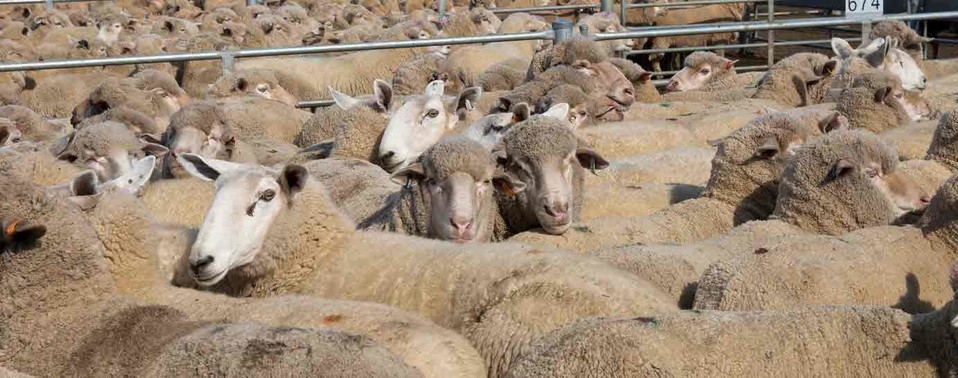Animal welfare depicted on live export vessel completely unacceptable
09 Apr 2018
Australia’s peak body for veterinarians, the Australian Veterinary Association (AVA), has described the footage of sheep suffering on board live export ships bound for the Middle East as horrific and utterly unacceptable and says urgent changes must be made.
The AVA policy on live export states:
Where live export occurs, there must be effective operational protocols in place to safeguard the welfare of the animals at all times during transport. The policy also calls for Australian-registered veterinarians who are independent of the exporting company to be mandated on all ships, and for effective enforcement of Australian Standards for the Export of Livestock (ASEL) by the Australian Government.
Ideally, Australian animals are slaughtered as close to the site of production as practicable to minimise transport and handling stress and ensure they are protected by appropriate and enforceable welfare and slaughter standards.
President of the AVA, Dr. Paula Parker, says that if the system intended to protect animal welfare fails, there needs to be an urgent response.
“Any breaches of the ASEL standards need to be taken extremely seriously, and penalties imposed,” Dr. Parker said.
The vision and the report released by the Department of Agriculture and Water Resources last week also indicate that aspects of the ASEL standards, as currently written, are insufficient to protect the welfare of sheep on long-haul voyages to the Middle East, especially during the northern hemisphere summer.
“It is the responsibility of industry and government to demonstrate that the welfare of sheep on live export voyages can be assured prior to ships leaving port,” Dr. Parker said.
The primary guiding principle for the export of livestock from Australia is that ‘the health and welfare of animals is a primary consideration at all stages of the livestock supply chain’. Industry and government must tangibly demonstrate integrity to this principle.
It is essential that urgent changes are made that factor in all of the risk variables. These include stocking density, ready access to water and feed, animal type and pregnancy status, destination, voyage length, temperature and humidity, ship ventilation and port risk. It is critical that veterinary expertise informs these changes to the risk model and that the changes are transparent to the community.
As part of these changes, positive assurance reporting must be increased. It is imperative that voyages are accompanied by sufficient equipment, veterinary workforce, and competent stock persons to care for the health and welfare of animals on board. Prompt veterinary care must be provided as needed and independent veterinarians must accompany voyages to audit on-board conditions.
We support the further investigation announced by the Minister for Agriculture and Water Resources, David Littleproud. The AVA is providing advice to Minister Littleproud and relevant industry bodies. The AVA is also providing veterinary expertise into the review of ASEL standards that commenced earlier this year. It is essential that this review encompasses all of the available information, including any findings relating to this investigation, and that the recommendations and subsequent standards are science-based.
“Action must be taken immediately to provide assurance of animal welfare on board live export ships to the Middle East. Appropriate standards must be in place and enforced to ensure horrific animal welfare outcomes like those depicted never occur again,” Dr. Parker said.
For further information and requests for interviews contact the AVA media office on 0439 628 898 or media@ava.com.au.
The Australian Veterinary Association (AVA) is the only national association representing veterinarians in Australia. Founded in 1921, the AVA today represents 9000 members working in all areas of animal science, health, and welfare.
